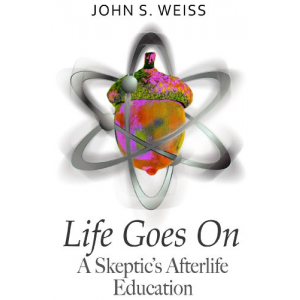Philip Kindred Dick (December 16, 1928 – March 2, 1982) was an American novelist, short story writer, essayist, and philosopher whose published works mainly belong to the genre of science fiction. Dick explored philosophical, sociological, political, and metaphysical themes in novels dominated by monopolistic corporations, authoritarian governments, and altered states of consciousness. In his later works, Dick's thematic focus strongly reflected his personal interest in metaphysics and theology. He often drew upon his life experiences in addressing the nature of drug abuse, paranoia, schizophrenia, and transcendental experiences in novels such as A Scanner Darkly and VALIS.[1] Later in life, he wrote non-fiction on philosophy, theology, the nature of reality, and science. This material was published posthumously as The Exegesis.
The novel The Man in the High Castle bridged the genres of alternate history and science fiction, earning Dick a Hugo Award for Best Novel in 1963.[2] Flow My Tears, the Policeman Said, a novel about a celebrity who awakens one day to find that he is unknown, won the John W. Campbell Memorial Award for best novel in 1975.[3] "I want to write about people I love, and put them into a fictional world spun out of my own mind, not the world we actually have, because the world we actually have does not meet my standards," Dick wrote of these stories. "In my writing I even question the universe; I wonder out loud if it is real, and I wonder out loud if all of us are real."[4]
In addition to 44 published novels, Dick wrote approximately 121 short stories, most of which appeared in science fiction magazines during his lifetime.[5] Although Dick spent most of his career as a writer in near-poverty,[6] eleven popular films based on his works have been produced, including Blade Runner, Total Recall, A Scanner Darkly, Minority Report, Paycheck, Next, Screamers, The Adjustment Bureau and Impostor. In 2005, Time magazine named Ubik one of the hundred greatest English-language novels published since 1923.[7] In 2007, Dick became the first science fiction writer to be included in The Library of America series.[8][9][10][11]
The novel The Man in the High Castle bridged the genres of alternate history and science fiction, earning Dick a Hugo Award for Best Novel in 1963.[2] Flow My Tears, the Policeman Said, a novel about a celebrity who awakens one day to find that he is unknown, won the John W. Campbell Memorial Award for best novel in 1975.[3] "I want to write about people I love, and put them into a fictional world spun out of my own mind, not the world we actually have, because the world we actually have does not meet my standards," Dick wrote of these stories. "In my writing I even question the universe; I wonder out loud if it is real, and I wonder out loud if all of us are real."[4]
In addition to 44 published novels, Dick wrote approximately 121 short stories, most of which appeared in science fiction magazines during his lifetime.[5] Although Dick spent most of his career as a writer in near-poverty,[6] eleven popular films based on his works have been produced, including Blade Runner, Total Recall, A Scanner Darkly, Minority Report, Paycheck, Next, Screamers, The Adjustment Bureau and Impostor. In 2005, Time magazine named Ubik one of the hundred greatest English-language novels published since 1923.[7] In 2007, Dick became the first science fiction writer to be included in The Library of America series.[8][9][10][11]


